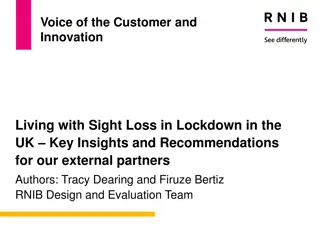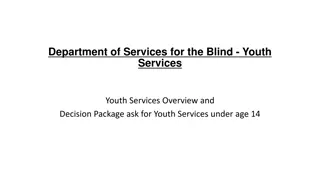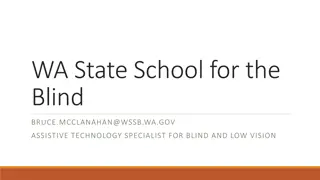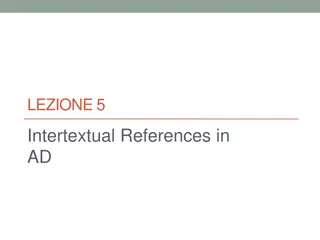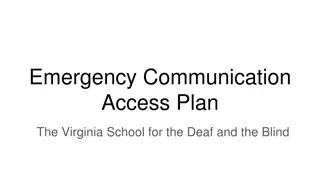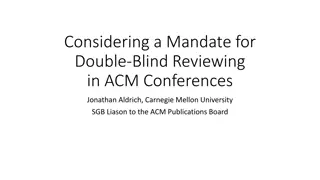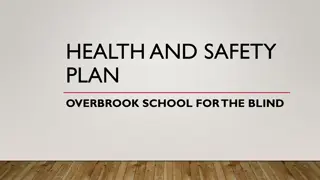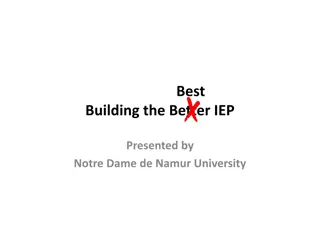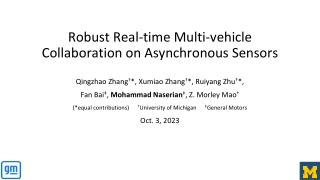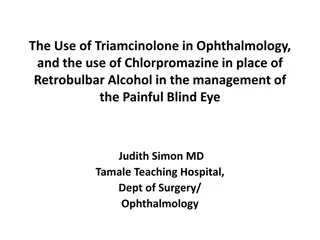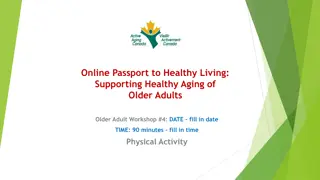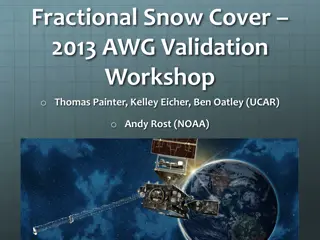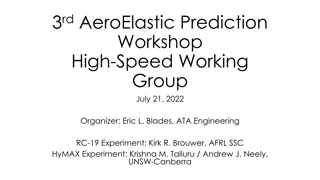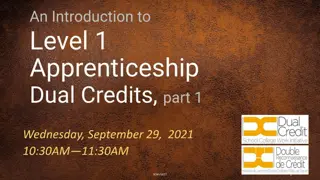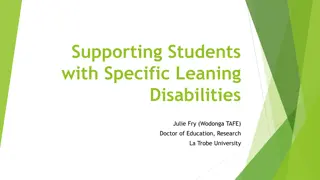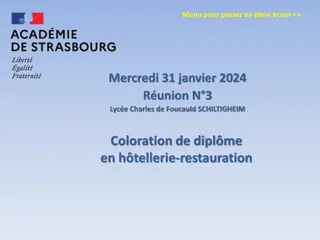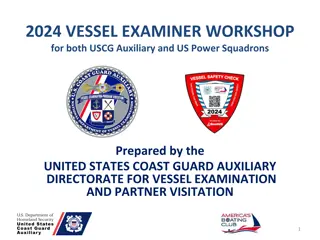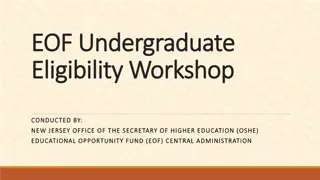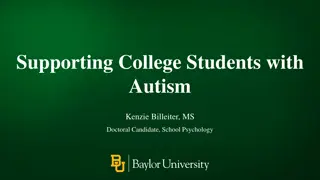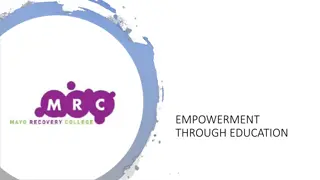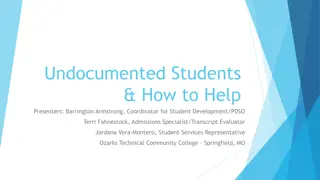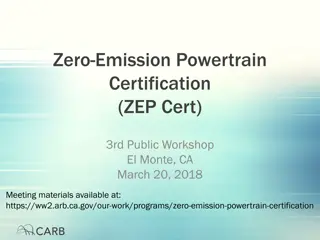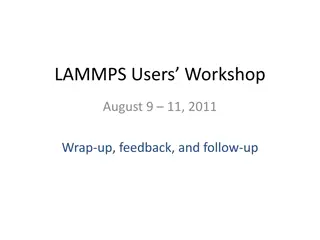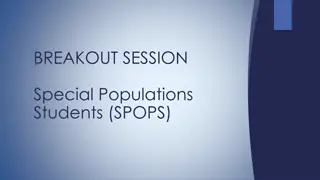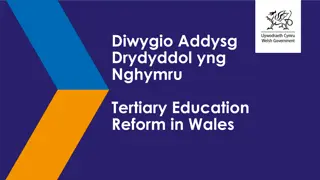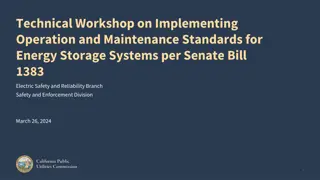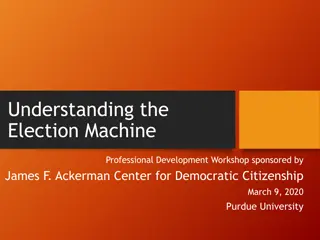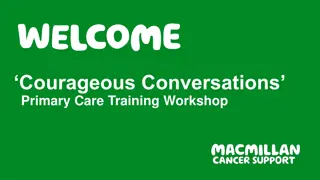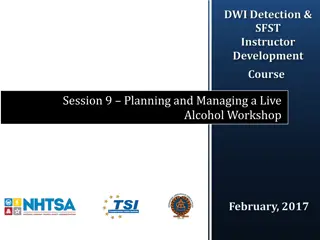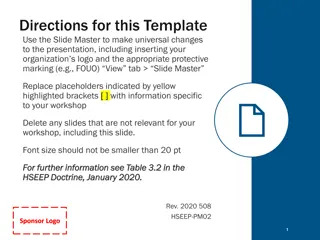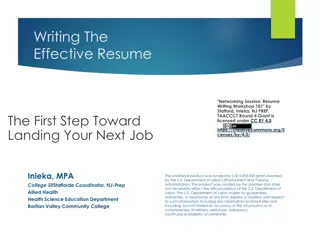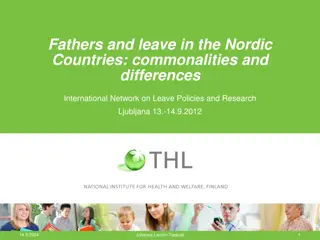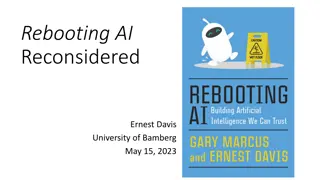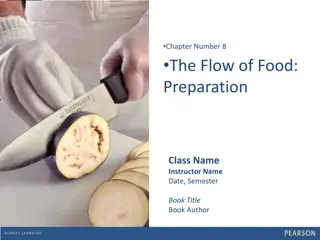Workshop on Supporting Blind and Partially Sighted Students in Post-16 Education
This workshop aims to address barriers faced by students with vision impairment, focusing on necessary skills for post-college life and available support for positive transitions. Topics covered include curriculum framework, maximizing educational opportunities, transitioning to future endeavors, and real-life case studies. Additionally, insights into the impact of vision impairment on learning and the Curriculum Framework for Children and Young People with Visual Impairment are discussed to promote independence and access to education. The session also explores tools for enhancing learning access and strategies for overcoming obstacles in higher education settings.
Download Presentation

Please find below an Image/Link to download the presentation.
The content on the website is provided AS IS for your information and personal use only. It may not be sold, licensed, or shared on other websites without obtaining consent from the author. Download presentation by click this link. If you encounter any issues during the download, it is possible that the publisher has removed the file from their server.
E N D
Presentation Transcript
Blind and partially sighted students in post 16 education Rosaleen Dempsey , Deputy Lead, Children, Young People, Families & Education (Devolved Nations), RNIB Tara Chattaway: Head of Education, Thomas Pocklington Trust
Workshop aims This workshop considers some of the barriers facing students with vision impairment, the skills they will need for their lives after college and the support available for positive transitions Overview and introduction Curriculum Framework for CYP with VI Getting the most out of FE Transitioning and what next Case studies
Vision impairment and the impact on learning What do we see? 2 - How the world looks to vision impaired children and young people - Thomas Pocklington Trust (pocklington- trust.org.uk) What do we see 2 How the world looks to vision impaired children and young people simulates the five most common conditions affecting vision impaired children and young people in the UK today. In this video we have simulated the conditions in an educational setting and used augmented reality to show how things typically look to those living with: Nystagmus, Retinitis Pigmentosa, Cataracts, Retinopathy of Prematurity and Optic Atrophy.
What is the Curriculum Framework for CYP with VI? A shared and agreed set of skills that CYP with VI need to access the curriculum. A shared language for VI specialists, schools, young people and parents to describe these skills. Contains 11 areas including Preparing for adulthood Aiding understanding of the long-term objectives of specialist professionals in helping CYPVI maximise their independence both in education and the wider world in preparation for adulthood. (p.9) Curriculum Framework for Children and Young People with Vision Impairment | RNIB
Curriculum Framework for CYP with VI A gradual move towards increased independence is the objective underpinning the framework Providing Access to Learning Teaching Learning to Access McLinden, M., Douglas, G., Cobb, R., Hewett, R., & Ravenscroft, J. (2016). Access to learning and learning to access : Analysing the distinctive role of specialist teachers of children and young people with vision impairments in facilitating curriculum access through an ecological systems theory. British Journal of Visual Impairment, 34(2), 177-195.
Overview of barriers Navigating around the college or university, perhaps with cane or guide dog. Living away from home Using access technology Accessing examinations Work experience and building on the CV
Getting the most out of Further Education important skills for young people Mobility & Independent living skills (Habilitation) Understanding access technology Accessing examinations
Mobility & Independent Living Skills (Habilitation) Habilitation is the process of helping visually impaired children and young people to achieve as much independence as possible in their daily lives. We do this by providing personalised training and support in mobility, orientation and independence. Working across any environment that a child/young person interacts e.g., home, school, college, community and social environments. (Guide Dogs UK) Cane skills (if appropriate) Accommodating a guide dog Moving safely around their accommodation and public spaces Independent living skills: self-care, cooking, managing money, support into employment
Understanding Access Technology Many devices have accessibility built in e.g., smart phones or tablets, others come from specialist suppliers of products designed for people with sight loss e.g., magnification or screen reading software on computers. Like al students, students with a vision impairment have individual learning styles and use technology differently Students may be new to Access Technology and require training It is important that key staff (including support staff) can familiarise themselves with the student s access technology
Examinations access FE & HE establishments should familiarise themselves with the VI accessibility guidance from the relevant examining body. As far as possible the exam arrangements should be in line with the student s normal way of working Preparation and planning for exams with the student is key, especially if the student is taking exams in a different way than they ve been used to Use of technology in exams is permitted e.g., an iPad with the connectivity turned off
Resources and useful links Habilitation Guide Dogs mobility training for children | Guide Dogs Access Technology RNIB technology resource hub: facts, tips and guides - RNIB - See differently Useful assistive and productivity tools for students - Thomas Pocklington Trust (pocklington-trust.org.uk) Making college accessible - Thomas Pocklington Trust (pocklington-trust.org.uk) Accessible Technology for students webinar to find out what tech is out there: Accessibility for students webinar https://www.pocklington-trust.org.uk/technology/accessible-technology-for-students/ Exam Access UCAF best practice Standards - UK Association for Accessible formats (ukaaf.org) NatSIP exam access NatSIP - Examination access for children and young people with sensory impairment Exam boards exam access guidance e.g., JCQ Access Arrangements, Reasonable Adjustments and Special Consideration - JCQ Joint Council for Qualifications
Resources and useful links Further Education Support Five Steps into mainstream college - Thomas Pocklington Trust (pocklington-trust.org.uk) Transition guidance - Thomas Pocklington Trust (pocklington- trust.org.uk) Technology and accessibility in further education - Thomas Pocklington Trust (pocklington-trust.org.uk)
Transitioning on University and Employment
Steps into university UCAS Applying for university Financing your studies Choosing the right accommodation Getting support in place Taking a gap year/deferring Six Steps into Higher Education - Thomas Pocklington Trust (pocklington- trust.org.uk)
Get the right support in place Disability team Individual assessment Discuss exam arrangements Library support What systems they use and how accessible they are We have a list of helpful questions to ask Resources Getting support in place at university - Thomas Pocklington Trust (pocklington-trust.org.uk) watch our webinar Chris, a disability adviser talks through what needs to be considered Step five: Getting support in place at university - Thomas Pocklington Trust (pocklington- trust.org.uk)
DSA What it covers: Specialist equipment e.g. a braille embosser, dictaphone or access technology Non-Medical Help (NMH) e.g. supporting mobility and orientation around campus Extra travel costs e.g. taxi fares to and from university Other disability-related costs of studying What it doesn t cover Daily support towards personal assistance Covering the cost of adapted accommodation needs in university housing or housing provided by an agent to the university. However, universities are required to make reasonable adjustments so that disabled students are not at a disadvantage compared with others.
DSA Assessment This is to discuss the students support needs The student can bring evidence to the meetings The assessor should explore the students needs and will write a report recommending non-medical help and/or equipment and training The student can see the report before it is sent to SLC to be approved When approved the student will then receive a DSA2 letter. This will set out what support has been granted. The DSA process is changing. It is down to you to sort this support out any issues go back to your assessor!
Resources Your DSA application - Thomas Pocklington Trust (pocklington- trust.org.uk) This includes a webinar presented by SLC on the process Listen to podcast talking you through the process and everything that you will need to know Episode 3 - Disabled Students Allowance (natsip.org.uk)
Employment Services Blind and partially sighted people work in a variety jobs across all sectors. RNIB and TPT provide employment resources and support to people with sight loss seeking work and to employers. Resources RNIB Employment Service Equality, rights and employment - RNIB - See differently TPT Employment Service Employment - Thomas Pocklington Trust (pocklington- trust.org.uk)
Case study one Jake Jake is 19 and is planning to attend his local FE college in September to study for his GCSE Maths, English and ICT. Jake has Retinitis Pigmentosa, a degenerative eye condition. He is registered as Severely Sight Impaired and is a guide dog user. Jake has applied to stay in college accommodation as he wants to be as independent as possible. He uses a laptop with the screen reading software JAWS in class. What skills might Jake need for a successful transition to the FE College? What skills and knowledge might college staff need to support Jake in his studies?
Case study two Niamh is 19 and is going to university to study engineering. She has diabetic retinopathy and uses a cane. What support should she be looking to put in place? Who at the university should she be speaking to? She will be moving away from home for the first time.
Contact details TPT Education team TPT Student Support Service: For anyone bps aged 11+ who is in or entering mainstream secondary, further or higher education. Studentsupport@pocklington- trust.org.uk support line on 0203 757 8040 Student support - Thomas Pocklington Trust (pocklington-trust.org.uk) Join our Student Support Community Facebook group
RNIB Contact Details RNIB Helpline 0303 123 9999 helpline@rnib.org.uk Children, Young People, Families & Education Service cypf@rnib.org.uk Website www.rnib.org.uk



